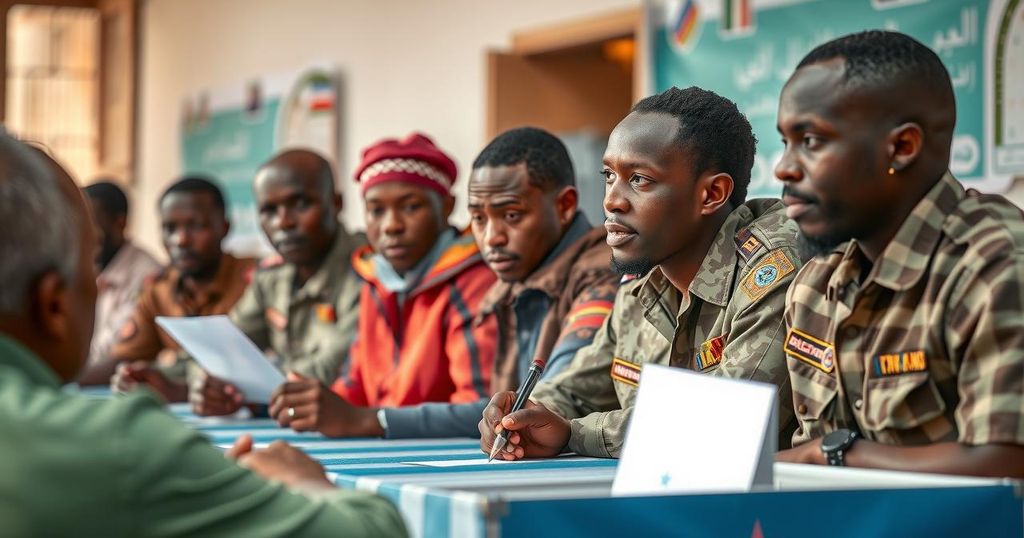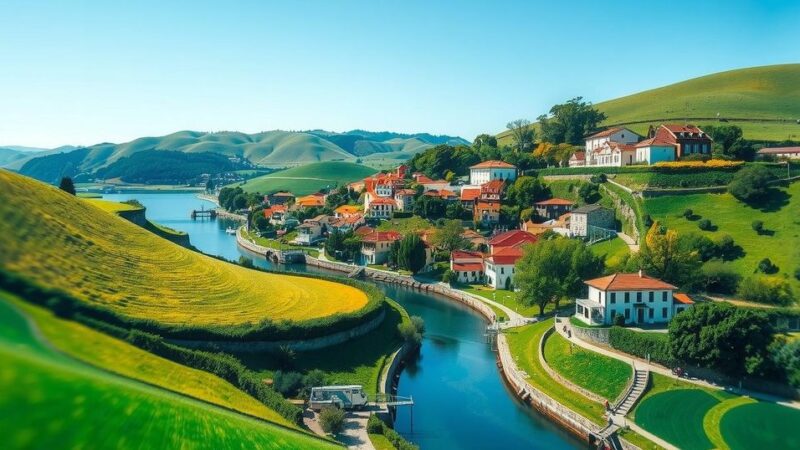Chad is holding legislative, provincial, and local elections after three years of military rule, amid a boycott by opposition parties alleging electoral fraud. Marshal Mahamat Idriss Itno’s administration promotes the elections as a critical step towards democracy while concerns about integrity and repression persist. Voting occurs against a backdrop of violence and media blackout, highlighting significant challenges within the country’s political landscape.
Chad is conducting elections on a Sunday, encompassing legislative, provincial, and local levels, marking a pivotal moment as the nation emerges from a three-year period under military authority. The electoral process has been significantly undermined by a boycott from opposition figures, who allege that the prior presidential election, held last May, was marked by fraudulence. Consequently, this boycott has paved the way for candidates affiliated with Marshal Mahamat Idriss Itno, the military leader sanctioned in power since 2021.
Mr. Succes Masra, a prominent opposition leader, articulated strong concerns regarding the integrity of the electoral system, suggesting, “it is better to stay at home,” to express dissent against what he described as a regime characterized by deception and electoral manipulation. Allegations of widespread ballot tampering were echoed by the Democratic Party of the Chadian People (PDPT), which reported missing ballots in the Bongor region and called for heightened vigilance against fraudulent activities purportedly orchestrated by the ruling MPS party.
Polling was scheduled from 6 am to 6 pm local time, with approximately eight million voters registered to participate, while international observers were present to monitor the proceedings. Notably, military personnel and members of law enforcement had the opportunity to vote a day earlier, as has been customary in previous elections.
The electoral backdrop is marred by ongoing threats from Boko Haram in the Lake Chad region, criticism of the military’s historic ties with France, and accusations surrounding Chad’s involvement in the conflict in neighboring Sudan. Marshal Itno’s administration touts the elections as a vital component of the nation’s political transition towards democratic governance, following a legacy of autocratic rule established by his late father, Idriss Deby Itno, who dominated for over three decades.
Despite efforts by the ruling party to galvanize public interest in the elections, widespread discontent persists amid a near-total silence from independent media due to ongoing strikes protesting governmental censorship. This culmination of events reflects a broader struggle within Chad, as public opinion grows increasingly critical of the regime’s increasingly repressive tactics, particularly in light of violent responses to previous opposition demonstrations.
Following the death of long-standing leader Idriss Deby Itno, Chad entered a period of military governance under Marshal Mahamat Idriss Itno. The democratic transition, which was supposed to culminate in elections, has been fraught with allegations of electoral malpractice and lack of genuine political competition, particularly from opposition parties. With a surge of violence from extremist groups and critical challenges in civil liberties, the atmosphere surrounding the elections exhibits significant societal tension. Media restrictions further exacerbate the situation, limiting public access to information and stifling dissenting voices, thus complicating the emergence of a democratic framework in the country.
In summary, Chad’s elections unfold in a context of significant political tension, characterized by a boycott from the opposition amidst claims of electoral fraud and intimidation. Marshal Mahamat Idriss Itno’s regime faces scrutiny not only for its past governance but also for the ongoing repressive measures that inhibit free expression and democratic participation. The unfolding situation is pivotal for Chad’s future political landscape, reflecting the challenges of transitioning from military rule to a more representative form of governance. Ultimately, these elections underscore the persistent struggle for democracy in the Sahel region.
Original Source: www.france24.com







